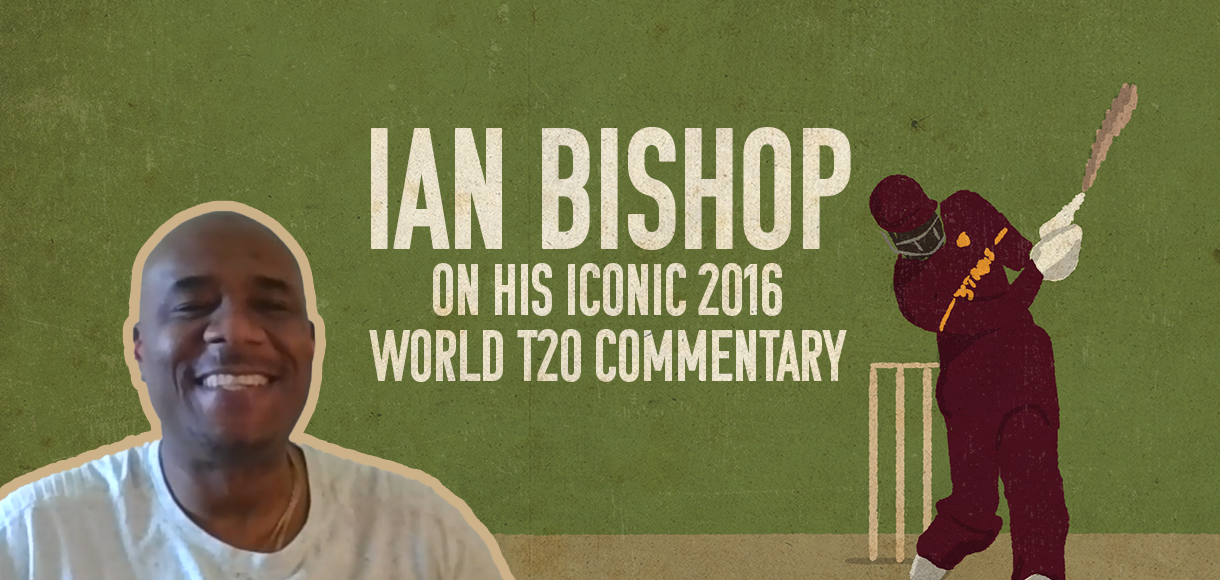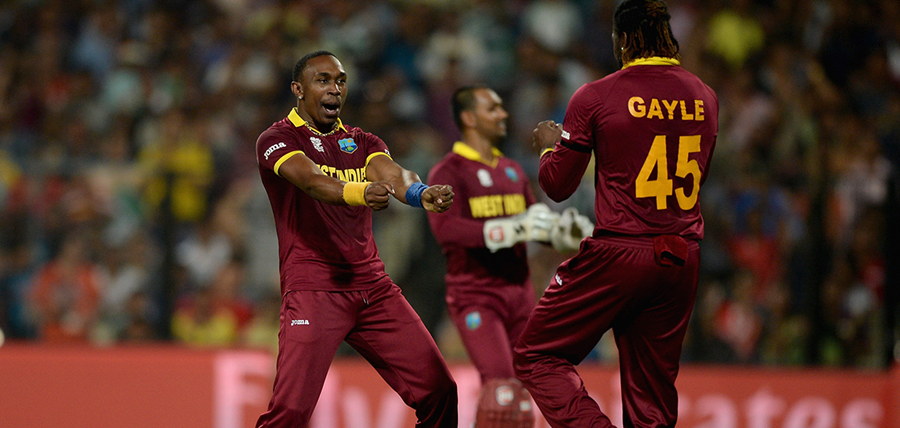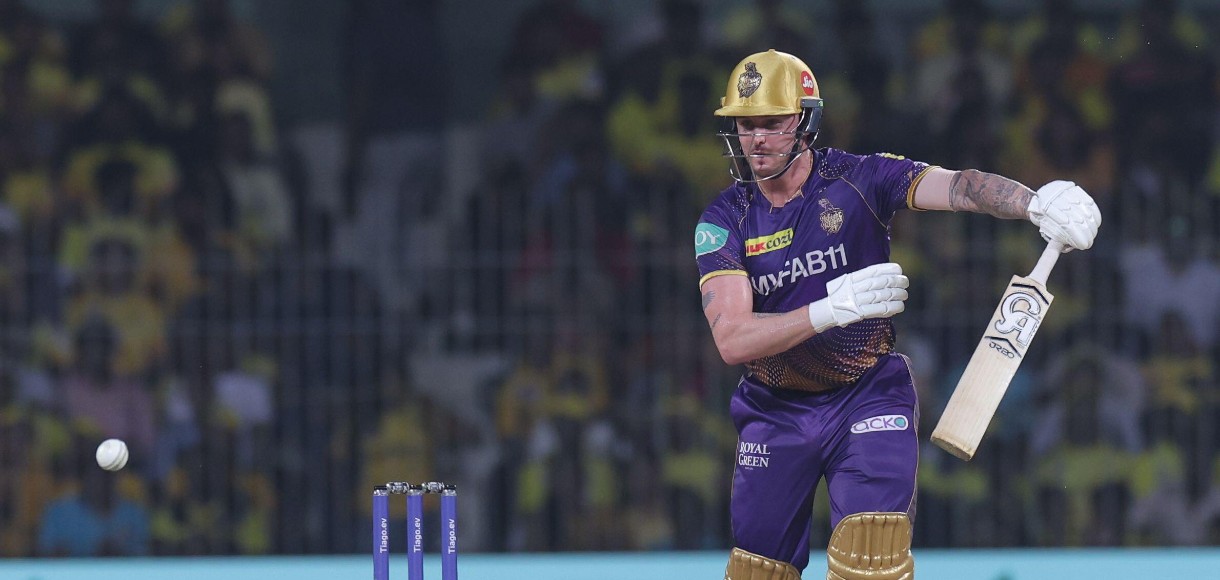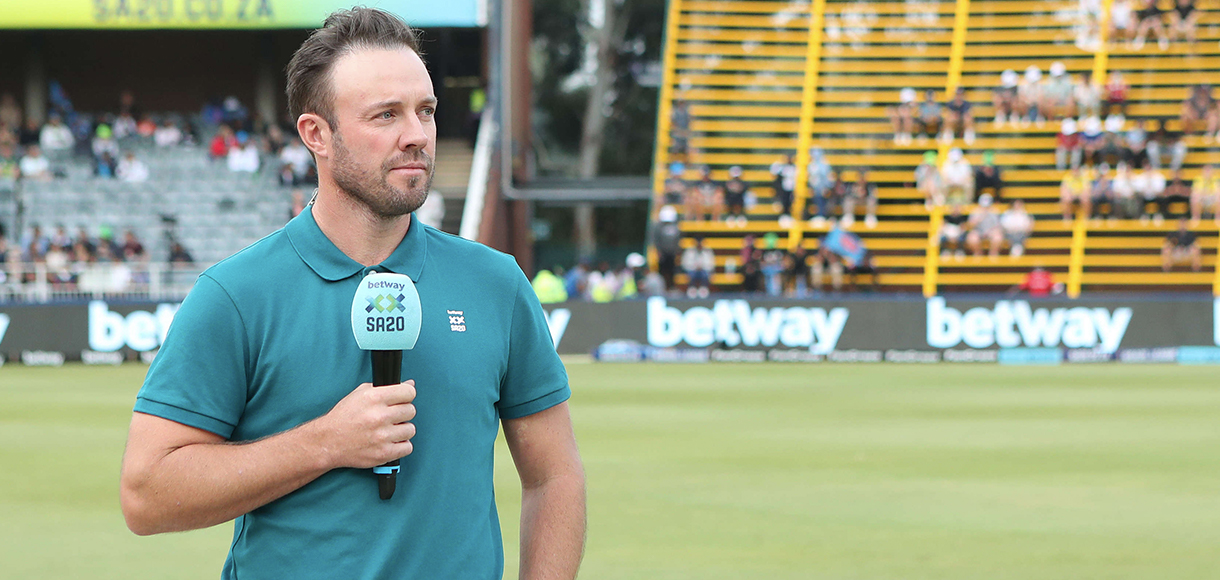Ian Bishop on his iconic 2016 World T20 commentary

The popular commentator discusses the impact of T20 cricket on the Caribbean and remembers his iconic commentary of the 2016 World T20 final.
“The players on the field make these moments,” says Ian Bishop, but he’s being modest.
In the 2016 World T20 final, West Indies required 19 from their final six deliveries to beat England and lift the trophy. As it happened, they only needed four, as Carlos Brathwaite smashed Ben Stokes for four consecutive sixes to seal the title.
Yet Bishop’s commentary is almost as fondly remembered as the feat itself, declaring: “Carlos Brathwaite! Carlos Brathwaite! Remember the name!”
Inspiration for that iconic line had come in the week before the famous victory for West Indies, who are among the favourites to defend their title in the latest 2021 World Cup cricket odds.
“I went to a function hosted by a friend of mine two days before the final,” says Bishop, who played 43 Test matches and 84 ODIs for West Indies between 1988-98 before becoming a popular broadcaster.
“And one of the questions posed was which players we should look forward to watching in the final, beyond the obvious guys like Chris Gayle and Dwayne Bravo.
“Carlos Brathwaite came to my mind because in that World Cup he’d been bowling well and he could smack the ball. I said to the guy: ‘Carlos Brathwaite is a good all-round cricketer, remember that name.’
“When he hit the final six, the first thing that regurgitated was what I’d said to that gentleman.
“I wasn’t the lead commentator at the time, it was David [‘Bumble’] Lloyd. I was just waiting to see how the action played out and then David tapped me on the shoulder and said: ‘Please, you go ahead’."
Bishop’s voice is synonymous with one of the most dramatic finishes in the game’s history, but he prefers to downplay his role.
“It’s actually embarrassing to talk about it,” he says. “I’ve got a bit more relaxed about it now, but for two or three years after that I ducked questions on it because it just sounded like nothing to me.
“Honestly, no line is really great unless the action on the field justifies it.”
That line is, of course, a highlight, but Bishop has been a familiar and authoritative voice on global cricket for several years.
The T20 revolution and the virtually continuous cycle of high-level cricket it has created has not only provided players with additional opportunities to shine, but broadcasters as well.
Yet the format is still new enough that several commentators, including Bishop, never got the chance to play it.
“Virat Kohli said recently that if you aim for Test-match cricket and play Test-match cricket, you should be able to cross over into other formats of the game,” he says.
“He was talking about one or two of his bowlers, but I actually think that the same applies to broadcasting. If you understand the fundamentals, it gives you a foundation.
“I love the game. I’m very open to research and talking to guys who played T20, and I think I’ve learned a lot about it by covering it so often.
“As a player, I always wanted to do better. My wife used to give me a hard time when I got a five-fer, for example, because, instead of celebrating it, I would be thinking about how I can get the next one.
“It’s ingrained in me.”
T20 cricket faced a battle for legitimacy when it first became mainstream in the mid-2000s.
But, although Bishop admits that, initially, he “did not know what to make of it”, he now gets frustrated by arguments that it is any less pure than other formats.
“It was initially entertainment,” he says, “but then it grew into a very serious format of cricket. You get more tactical nuances because one ball can be the difference in a game.”
There’s much more money involved, too, the sort that Bishop missed out on by just a few years.
“I always accepted that I was paid more during my time than the generation before me,” he says. “I don’t think I’ve ever said, even privately, that this guy or that guy doesn’t deserve what they’re being paid.
“The market determines your earning power. I am happy to see guys and girls secure their financial future, because it’s happened too often that players who helped put their country on the map need assistance once they’ve retired.
“Dwayne Bravo, Kieron Pollard, Chris Gayle. These are great T20 cricketers and that makes them great cricketers in their own right. There’s room for everyone.”

It’s no coincidence that Bishop lists three West Indian players as the greats of the format, and not just because he proudly represented them for 10 years.
They are probably the greatest T20 nation ever, producing several giants of the format and winning two of the last three World Cups. No other team has ever won more than one.
During a period of time in which Caribbean cricket has suffered from a lack of participation and boardroom unrest, T20 has kept cricket in the region alive.
“It’s the perfect storm,” Bishop says. “What has always summed up West Indies players? Athleticism, power, panache, flair, power-hitting, mystery spin.
“Think Sonny Ramhadin, Alf Valentine, Garfield Sobers, Clive Lloyd, Viv Richards. These guys possessed those traits.
“We now have a format that suits those skills to a greater degree than ever. It is natural to West Indies cricketers.
“But these guys have thought about the game, too. Pollard, Bravo and others are very smart. It’s a marriage of all of those things.”
With Gayle, Pollard and Bravo now in the twilight of their careers, the 2021 World Cup represents their chance to establish themselves as the undisputed T20 kings.
“We have to be realistic, there are lots of contenders,” says Bishop. “England have got guys who are aggressive with the bat. India have stars throughout their line-up. New Zealand are beginning to hit more boundaries and have a dangerous bowling attack. Pakistan are dangerous with the ball.
“But the West Indies have so much experience now, so I have my fingers crossed that they can go well.”
If they do make it three T20 World Cups from the last four, you can be certain that Bishop will find the perfect line to accompany the moment.



































